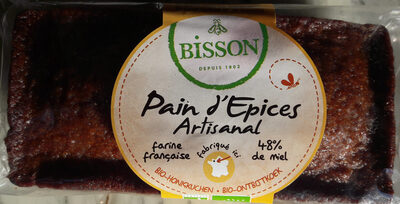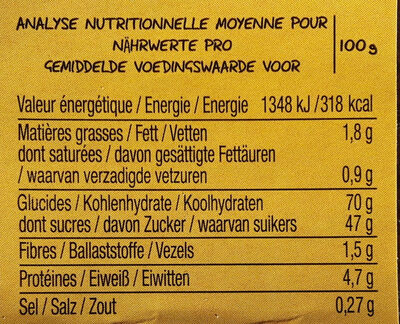Pain d'epices - Bisson - 250 g
This product page is not complete. You can help to complete it by editing it and adding more data from the photos we have, or by taking more photos using the app for Android or iPhone/iPad. Thank you!
×
Barcode: 3760005023066 (EAN / EAN-13)
Common name: Pain d'épices
Quantity: 250 g
Brands: Bisson
Categories: Snacks, Sweet snacks, Biscuits and cakes, Gingerbreads
Labels, certifications, awards:
Organic, EU Organic, FR-BIO-01
Countries where sold: France
Matching with your preferences
Report a problem
Data sources
Product added on by kiliweb
Last edit of product page on by ecoscore-impact-estimator.
Product page also edited by khorkaadren, moon-rabbit, openfoodfacts-contributors, phenix8, roboto-app, yuka.UTVvcElva2JndlVPdHNGZ3pnemYwWWd2eHFDa1VYN3BBY01YSVE9PQ, yuka.YUljZE5ZVXpwY1Jidk5vUS9oMkk1SWxseW9DUVl6MnJOTm9LSWc9PQ, yuka.sY2b0xO6T85zoF3NwEKvlm5nSYHs-W3JEDjfsBSKnNjeLcf2W8hv4rnGLag.













